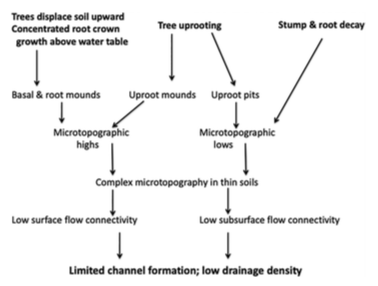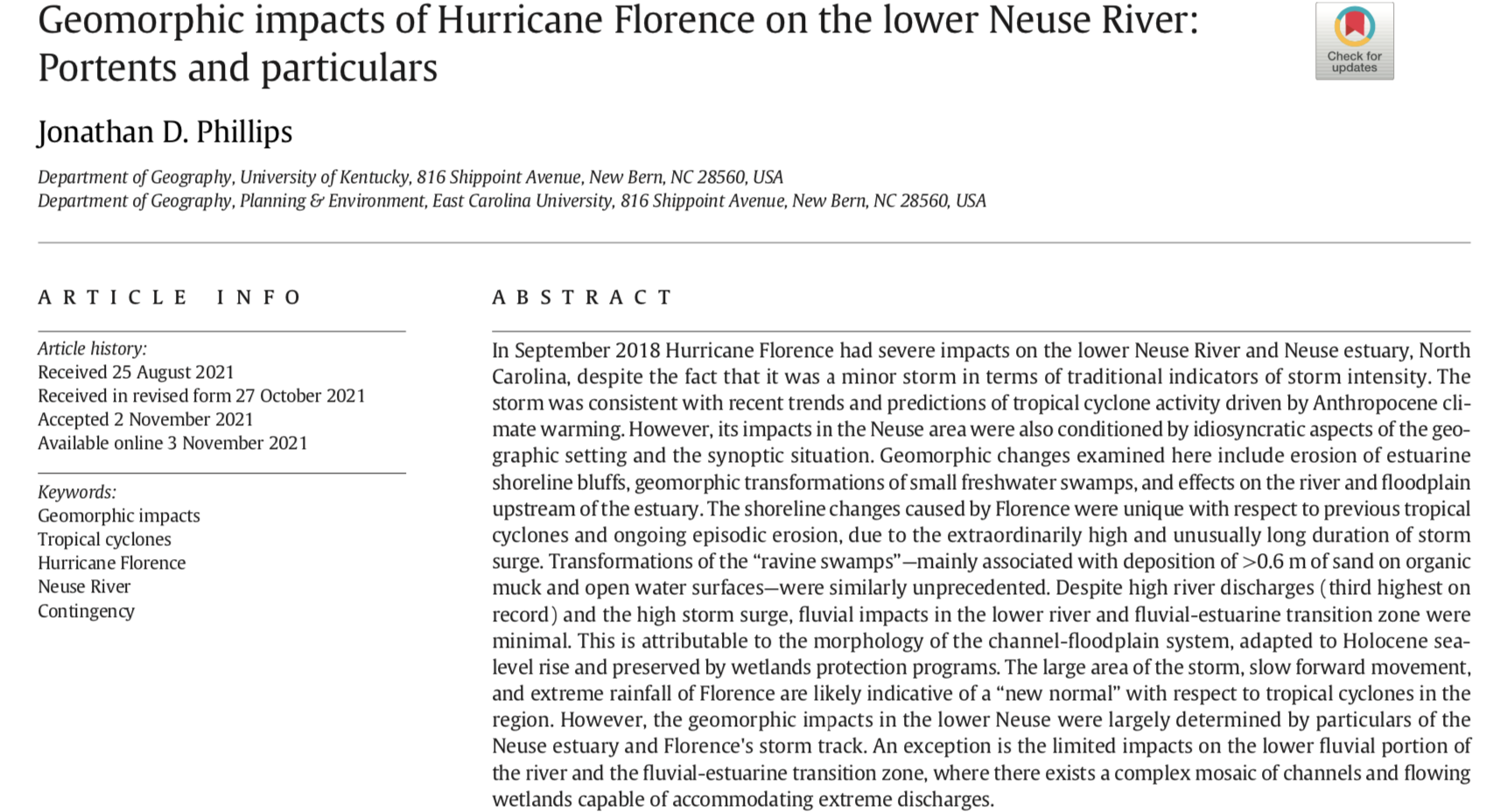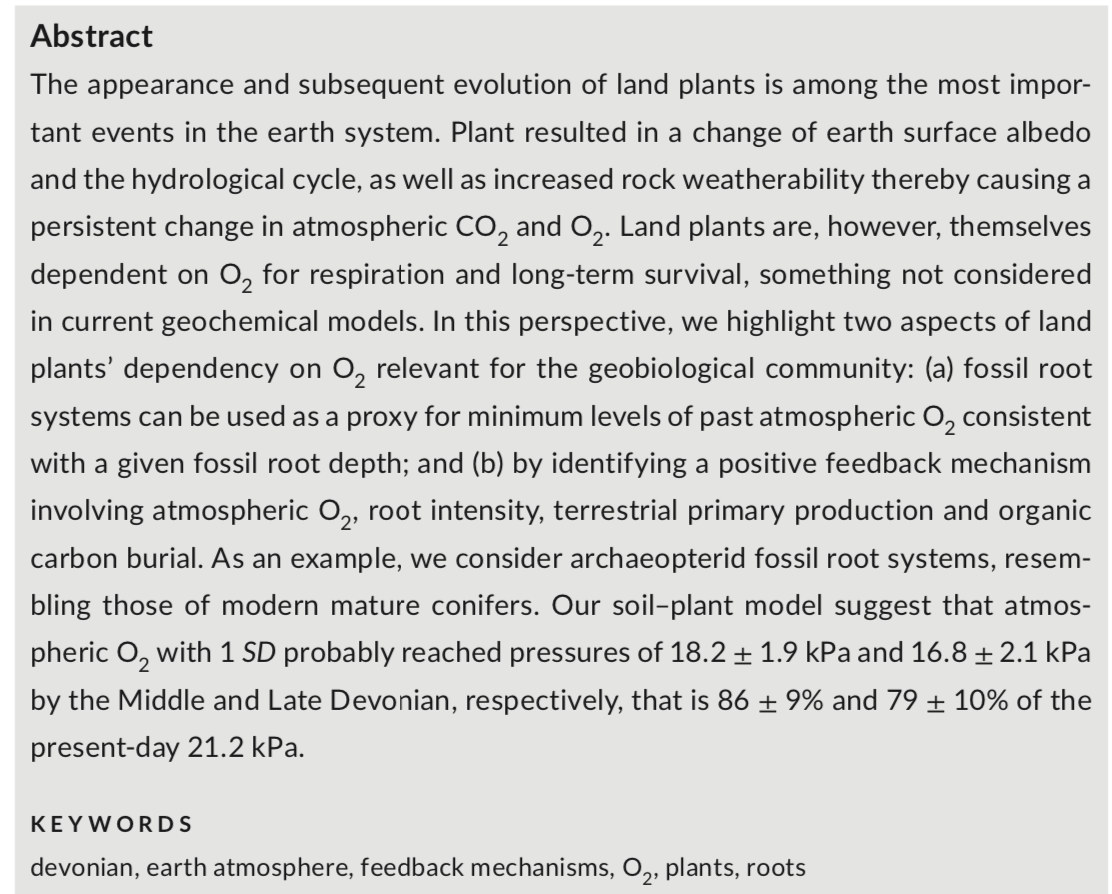THE ART OF SCIENTIFIC STORYTELLING (PART 2)
In the first part of this thread I tried to show how artist Petr Mores collaborated with Pavel Šamonil and myself to depict certain landscapes of the Šumava Mountains in central Europe to show interactions among topography, geology, soils, and vegetation. In this installment I’ll get a bit more specific with respect to the story we are trying to tell.
The short version of the story is that Norway spruce (Picea abies) modifies its environment (ecosystem engineering), mainly through biogeomorphic effects, in a way that largely controls the development of landforms and hydrologic fluxes. In doing this, Picea abies helps maintain environmental factors that favor the success of spruce relative to competing trees.
Here’s the way Pavel and I depicted it in a scientific article (Phillips and Samonil, 2021; available here):

Biogeomorphic effects of Picea abies limiting the development of fluvial dissection and channelized surface drainage (Fig. 12 from Phillips & Samonil, 2021).



